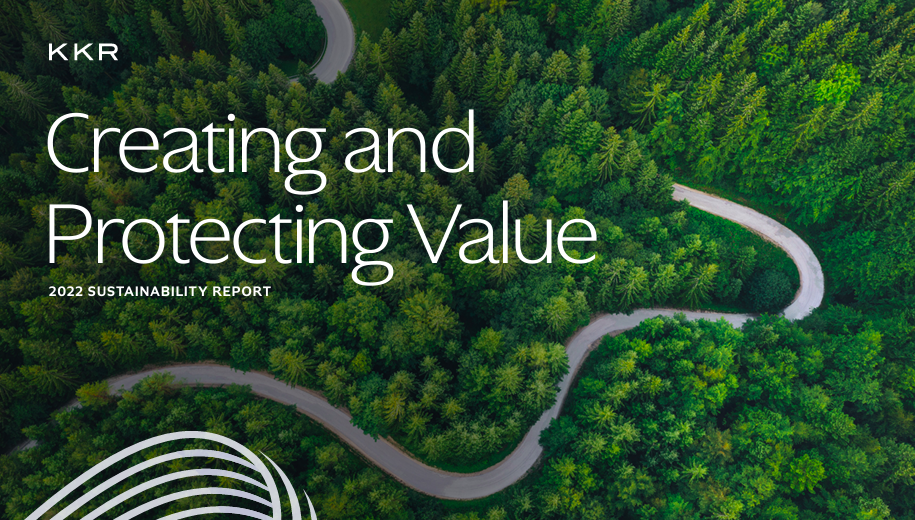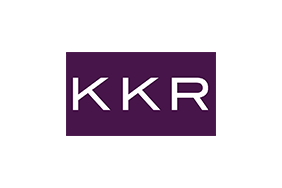How Sustainable Investing Can Create and Protect Value
By Ken Mehlman
Published 06-29-23
Submitted by KKR

Originally published on Jun 23, 2023
At KKR, we are unwavering in our commitment to seek to create and protect value. We have a fiduciary duty to our clients to do so. We also know that there is a wide range of individuals affected by our investment activities, including retirees, businesses, local communities, and others. They too have a meaningful stake in how we invest and do business.
Recently, some have questioned the merits of focusing on “ESG” factors as a tool in investment management. The bases of these questions are:
- Genuine disagreement about appropriate ways for our society to deal with challenges such as climate change; energy security; diversity, equity, and inclusion (DEI); and other topics;
- The appropriate role of business and investors in these areas; and
- The lack of uniform definitions for terms like “ESG” or “responsible investing.”
We welcome these questions. In fact, we ask ourselves these same questions. It is through dialogue and self-assessment that we can both learn from others and hold ourselves accountable. For us, our approach to what we call “sustainable investing” is an opportunity to create value and mitigate risk. It is one of many tools we have to create value, including financial proficiency, operational insight, macroeconomic expertise, and the experience gained from KKR’s 47 years of investing. Our experience has shown us that companies that focus on ESG-related risks and opportunities — where material — can create stronger, better investment outcomes. We have been doing this for many years and have publicly shared how we think about sustainable value creation for over a decade.
It is important to recognize that this work is not “one size fits all.” As this year’s report describes — and as we have described in the past 11 reports before it — we seek to identify material risks and potential value creation opportunities as part of our investment process, which are based on a number of factors, including the company’s industry, where it operates, and its stakeholders. When we talk about ESG topics, we refer to material risk factors and opportunities, which may include, for example, understanding safety records at our manufacturing investments, consumer-lending practices at financial services investments, or patient outcomes in health care investments. To enhance our thinking, we aim to incorporate third-party frameworks and standards and bring clarity to a confusing landscape by being transparent about our approach and explicit about the terminology we use to explain it.
More broadly, we identified four key objectives that we believe can align with risk mitigation and value creation across a wide variety of industries. We call these our Global Ambitions. It is our intent to support improved performance across our portfolio companies in these areas: i) Managing material ESG topics and adopting an appropriate governance framework; ii) Engaging human capital; iii) Managing climate risks and opportunities; and iv) Protecting data privacy and cybersecurity.
Why focus on these areas? Put simply: We believe that managing them helps us create and protect value.
As one example, we have found that supporting the implementation of robust employee engagement and ownership programs can create a more productive workforce, increase employee retention, and enhance operational excellence. We have experienced this by supporting employee ownership and engagement programs at 30 of our portfolio companies since 2011. The benefits of an engaged workforce as performance drivers are supported by third-party research1, where engaged teams have been found to drive 14% higher productivity and 23% higher profitability. We further detail these benefits and our experience with other topics within this report.
We also believe that creating and protecting value demands a broad, global lens. Mega and macro trends such as the energy transition, supply chain resiliency, digitization, and lifelong learning are areas of global concern where we intend to invest.
Moreover, we see providing necessary goods and services to customers and addressing global challenges as not mutually exclusive. Globally, we invested approximately $40 billion across multiple asset classes in areas aligned with such macro tailwinds since 2010, and we believe there will be more opportunities in the future. In an era of geopolitical competition, we believe investors should seek to understand geopolitically driven risks and opportunities.
This is a time of rapid social, economic, political, and technological change. Recognizing our primary responsibility to manage the investments of tens of millions of retirees — an important societal objective — and as partners to our portfolio companies in building successful commercial enterprises, we work to navigate these changes with a growth mindset. This includes learning as we go, being committed to improving, and being open to constructive criticism from those who may challenge our assumptions. Throughout all, we seek to create and protect value for our investors and for all those who are relying on us.
To learn more about our approach to sustainable investing and for more information, read our 2022 Sustainability Report.
1. Gallup, The Relationship Between Engagement at Work and Organizational Outcomes: 2020 Q12® Meta-Analysis:10th Edition, 2020.

KKR
KKR
KKR is a leading global investment firm that offers alternative asset management as well as capital markets and insurance solutions. KKR aims to generate attractive investment returns by following a patient and disciplined investment approach, employing world-class people, and supporting growth in its portfolio companies and communities. KKR sponsors investment funds that invest in private equity, credit and real assets and has strategic partners that manage hedge funds. KKR’s insurance subsidiaries offer retirement, life and reinsurance products under the management of Global Atlantic Financial Group . References to KKR’s investments may include the activities of its sponsored funds and insurance subsidiaries. For additional information about KKR & Co. Inc. (NYSE: KKR), please visit KKR’s website at www.kkr.com and on Twitter @KKR_Co.
More from KKR

